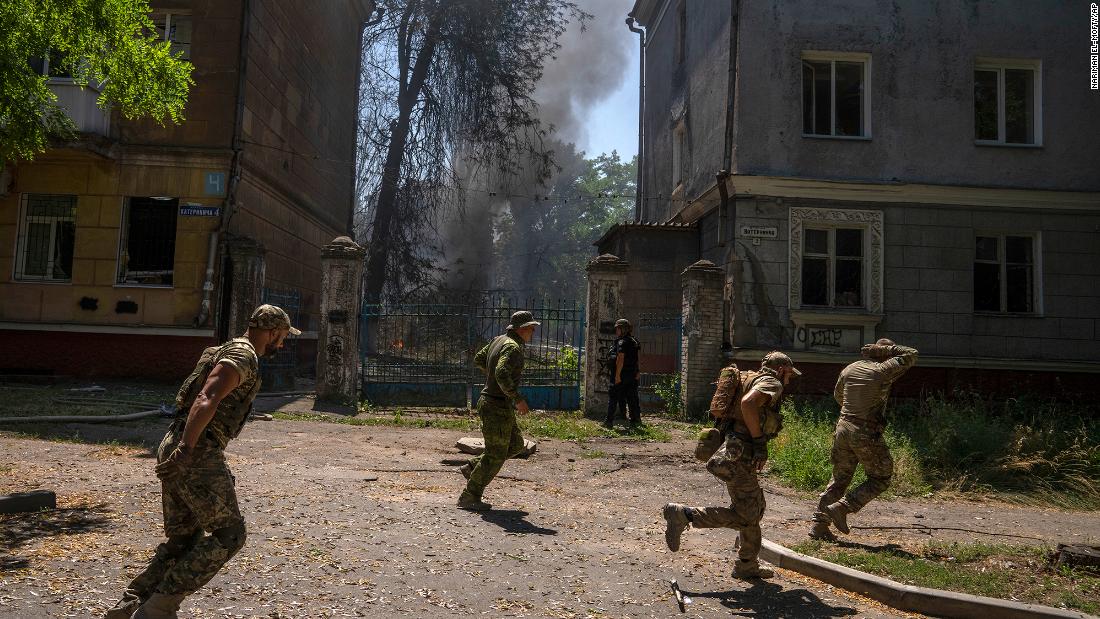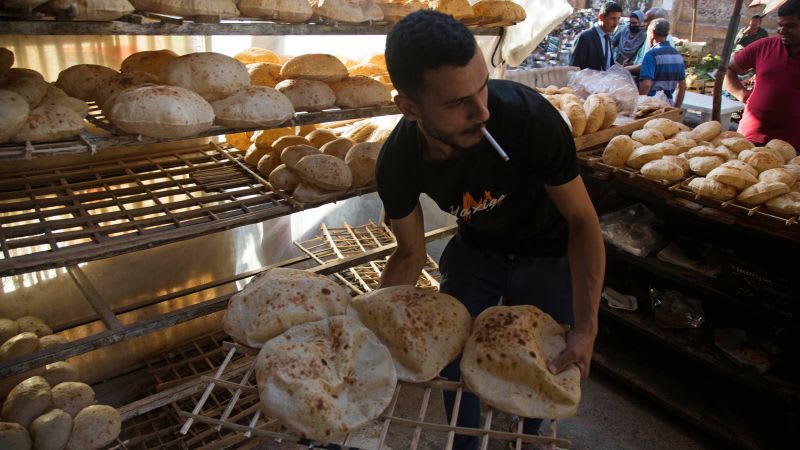
There are only a few items in Hanna Ayyad’s fridge at any given moment these days. The Cairo street fruit vendor has restricted his family’s diet as inflation triggered by the Ukraine war has soared in Egypt.
“Now we buy new clothes every other holiday,” he tells CNN. “We can do without eating meat, buying it once a month, and we may buy chicken two or three times a month, not like before.”
His customers too can only afford a fraction of what they used to buy, shrinking his daily income.
“Some people used to buy 5kg or 10kg of fruit – now they can buy 1kg or 2kg at most,” he says. It takes him days to sell the same amount of produce he used to sell in one day.
Egyptian households of all income levels are seeing their spending power erode fast. The economic crisis raises prospects of unrest in a country where a regime was overthrown just a decade ago in an uprising calling for “bread, freedom and social justice.”
In recent months, scores have protested because of delays to new car deliveries caused by import restrictions and the devaluation of the local currency; Facebook groups were set up to find local alternatives for pet foods after imports were restricted, and poorer Egyptians like Ayyad have cut back on groceries.
Moody’s credit rating agency warned in May about “social and political risks” as it downgraded Egypt’s economic outlook for the year from stable to negative. And the government appears to share those concerns.
Anticipating unrest, President Abdel Fattah el-Sisi has initiated a national dialogue with opposition figures, a change of tack from a crackdown on dissent that has kept thousands of people behind bars for years.
Wheat import prices double
Egypt’s official inflation rate stood at 14.7% in June, up from around 5% at the same time last year, but consumers say prices have skyrocketed beyond this figure since the Russian invasion of Ukraine began in February.
Across the capital, at an upscale supermarket, Haya Aref looks for cheaper, local alternatives on her shopping list. Previously, she would notice 10% to 15% increase in prices every six or eight months, but the price hikes have become more frequent and bigger now, she says.
“I used to buy an international brand [of cereal] that was probably around 70 or 80 Egyptian pounds (around $4) that has now gone up to 250 ($13),” the 23-year-old architect says. She has cut down on proteins and snacks to trim her monthly budget. For her, locally grown vegetables have become an affordable and healthier option.
The war in Ukraine has brought uncertainty to global grain markets and driven up prices. Egypt, which depends on Russia and Ukraine for 80% of its wheat imports, now pays $435 per tonne instead of $270 last year, according to the government.
Read more:
For an inside look at the biggest stories and trends in the Middle East, sign up for CNN’s Meanwhile in the Middle East newsletter here.

